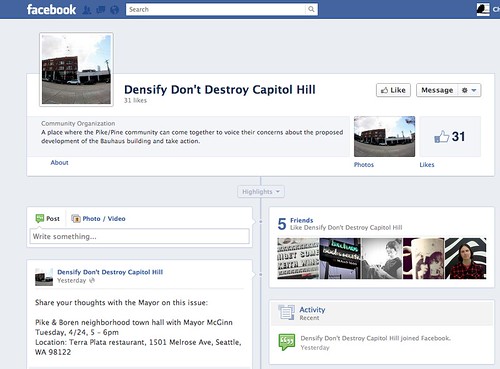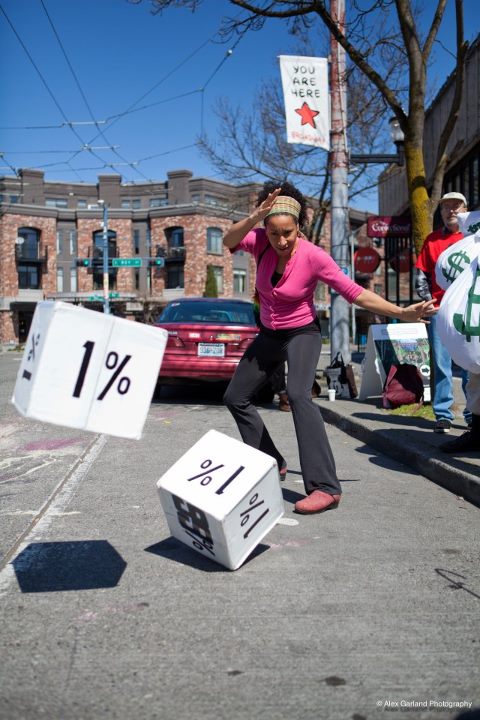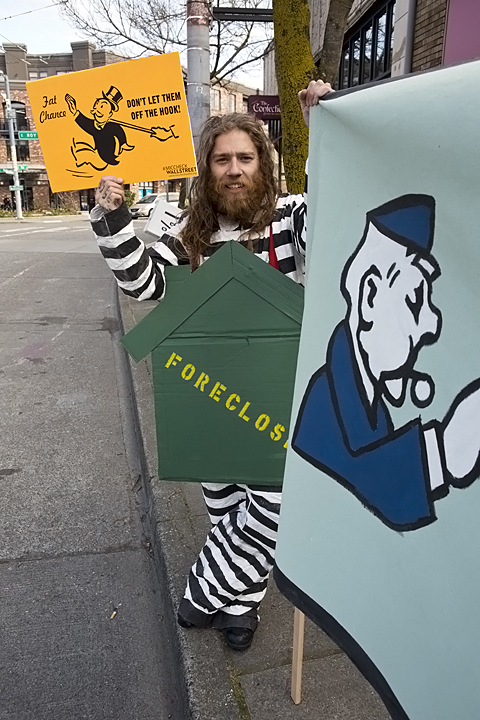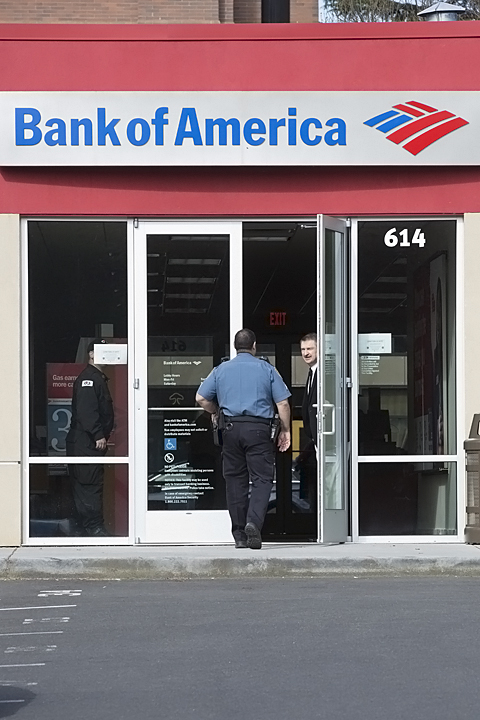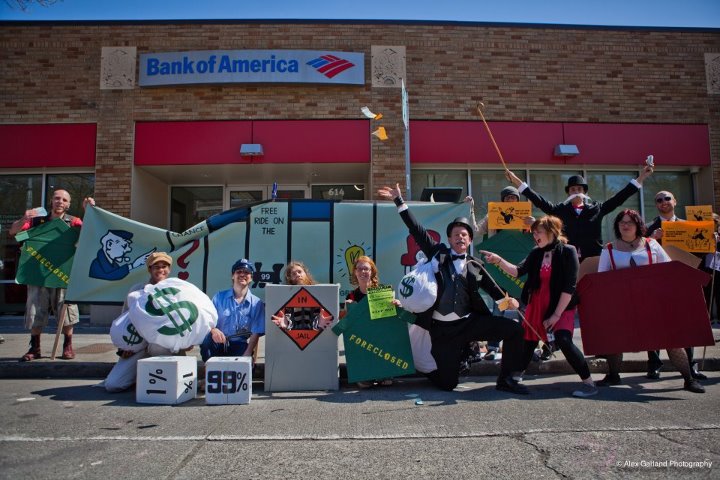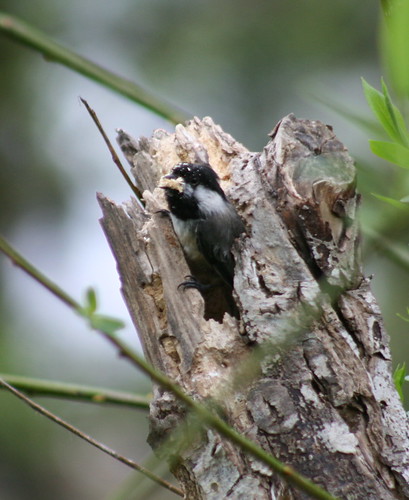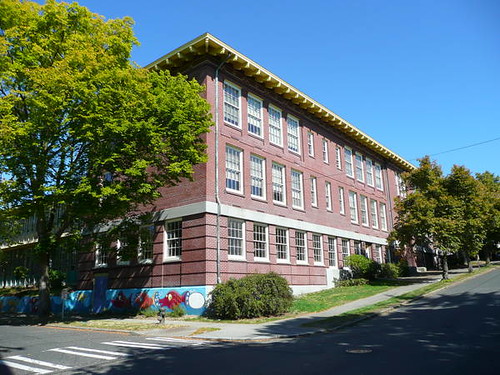Chatty, chatty crow. Here’s who the bird found to talk to this week on Capitol Hill — a homeless homeless advocate, a HIV education promoter and a bookstore owner. Who did you talk to this week?
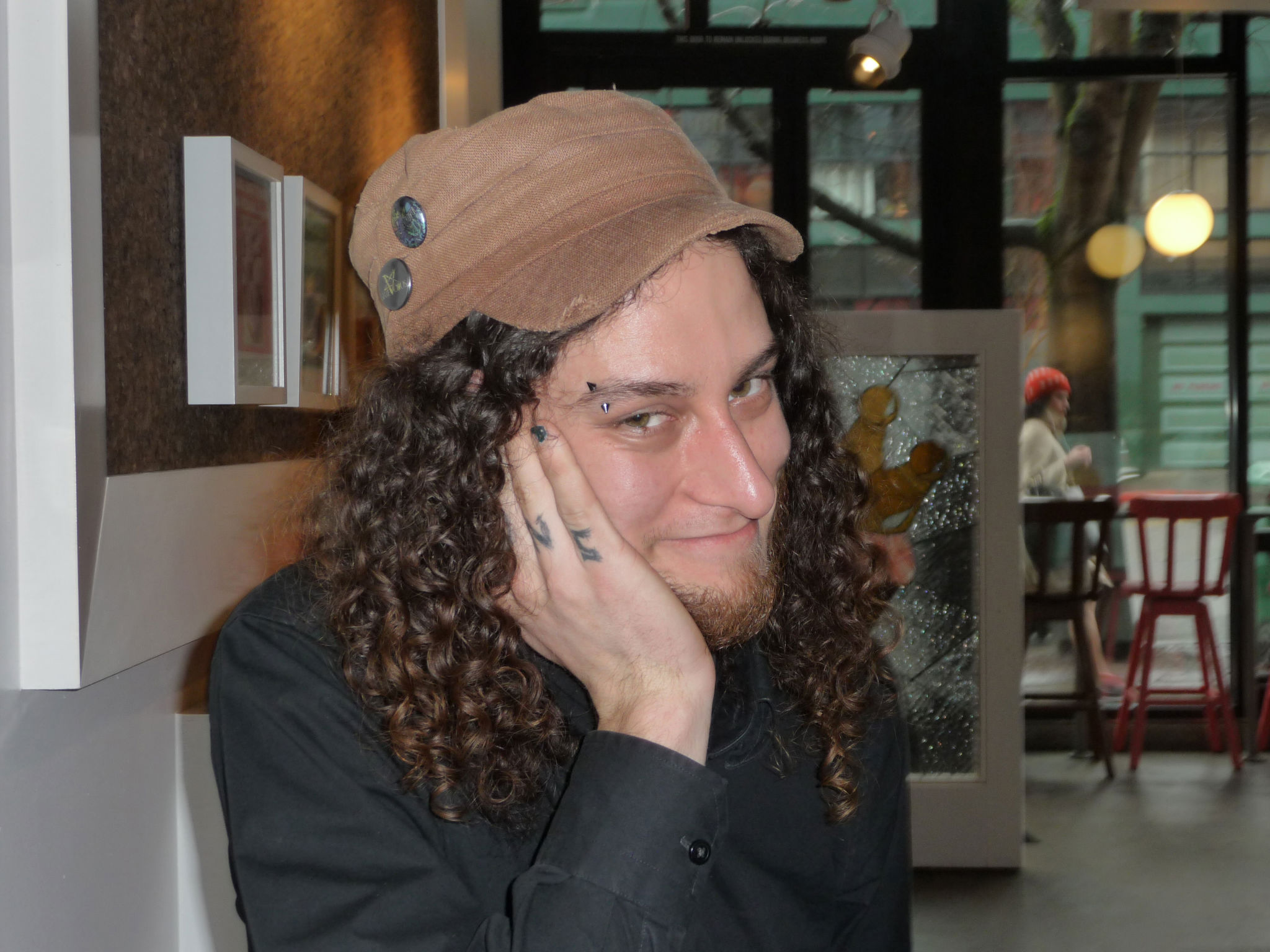 I overheard you saying that you were just interviewed on NPR. I have no idea what it was about, and I don’t have that soothing “NPR voice,” but would you like to be interviewed for CHS?
I overheard you saying that you were just interviewed on NPR. I have no idea what it was about, and I don’t have that soothing “NPR voice,” but would you like to be interviewed for CHS?
Sure! I was being interviewed on NPR about Seattle’s new Safe Parking Program, which connects homeless people who live in their vehicles with places to park overnight. You can find out more about this at www.stopimpoundinghomes.org.
How did you get involved with this program?
Because I’m homeless — I live in my van, which I usually park down in Ballard. I’m a good spokesman for the project, because I’m probably not the person you think of when you hear the words “homeless guy.” First off, I’m young. I’m not dirty, or a drug addict, but the same is true for a lot of homeless people. We can “pass” in everyday society, which makes us an invisible minority. For instance, I don’t look like the stereotypical “street person.” Instead, I look like …well, a guy you would come up and talk to in a cupcake shop.
Did you drive your home to Capitol Hill today?
Ha! No, I usually don’t drive to the Hill, because of the parking situation. When your home is also your vehicle, the risk of getting impounded means the risk of sleeping on the streets.
Are there laws against living in your car or van if it’s parked on the street?
No, but there are parking regulations that mean you have to keep moving your car every 72 hours. It’s a constant cat-and-mouse game with the police. Also, local residents complain, because they don’t want homeless people living on their street. The solution is always, “move along to the next neighborhood.” But if you don’t give people somewhere to go, you’re just relocating the problem, not solving it.
How will the Safe Parking Program help this situation?
The program is hooking up families and other homeless people with places like the parking lots of churches that have agreed to let them park there, so they won’t be harassed. They homeless people will also be able to use the bathrooms, and water facilities.
Do you spend much time on Capitol Hill?
I go to Seattle Central Community College, so, yeah. I also volunteer with the new Ballard chapter of Food Not Bombs, and some of the places that donate food to us are in this neighborhood. But I don’t spend much time here, outside of that. Capitol Hill doesn’t have much to offer someone like me.
Why is that?
This area has a very recessive personality. On the outside, there may appear to be a lot of diversity, but people here are very insular—they tend to stay in their own social groups. They think they’re open-minded, and they are in the abstract, but there’s really not a lot of cross-cultural interaction.
What are you studying at Seattle Central?
Anthropology. I’m mostly interested in Applied Anthropology, rather than the theoretical side of it.
So, how would you apply anthropology to change Capitol Hill?
For one thing, I’d like to see more crossover in the music scene. There are a lot of venues where a lot of different music is being played, but, again, people tend to stay in their comfort zone. For instance, you’ll have a lineup of all folk bands, or all industrial, or hip-hop, or whatever. Why not combine totally different genres in one bill?
But, do you think that the people who come out to hear an acoustic folk singer would also want to hear, say, a Cradle of Filth cover band?
Why not? At least people would be exposed to something new. Okay, I’ll admit—I don’t know if it would work, but I think it would be an interesting anthropological experiment.
Are you a musician yourself?
Yes, I play the mandolin, and the guitar and I sing. I would describe my style as “folk metal.”
Folk metal? Is that, like, “Peter, Paul & Mary meets Black Sabbath”?
I know it sounds weird, but there are actually a lot of metal bands with heavy folk influences, and vice versa. I love combining genres and subverting expectations. With music, as with people—when you open your mind, and are open to new things, you start to wake u to new possibilities.
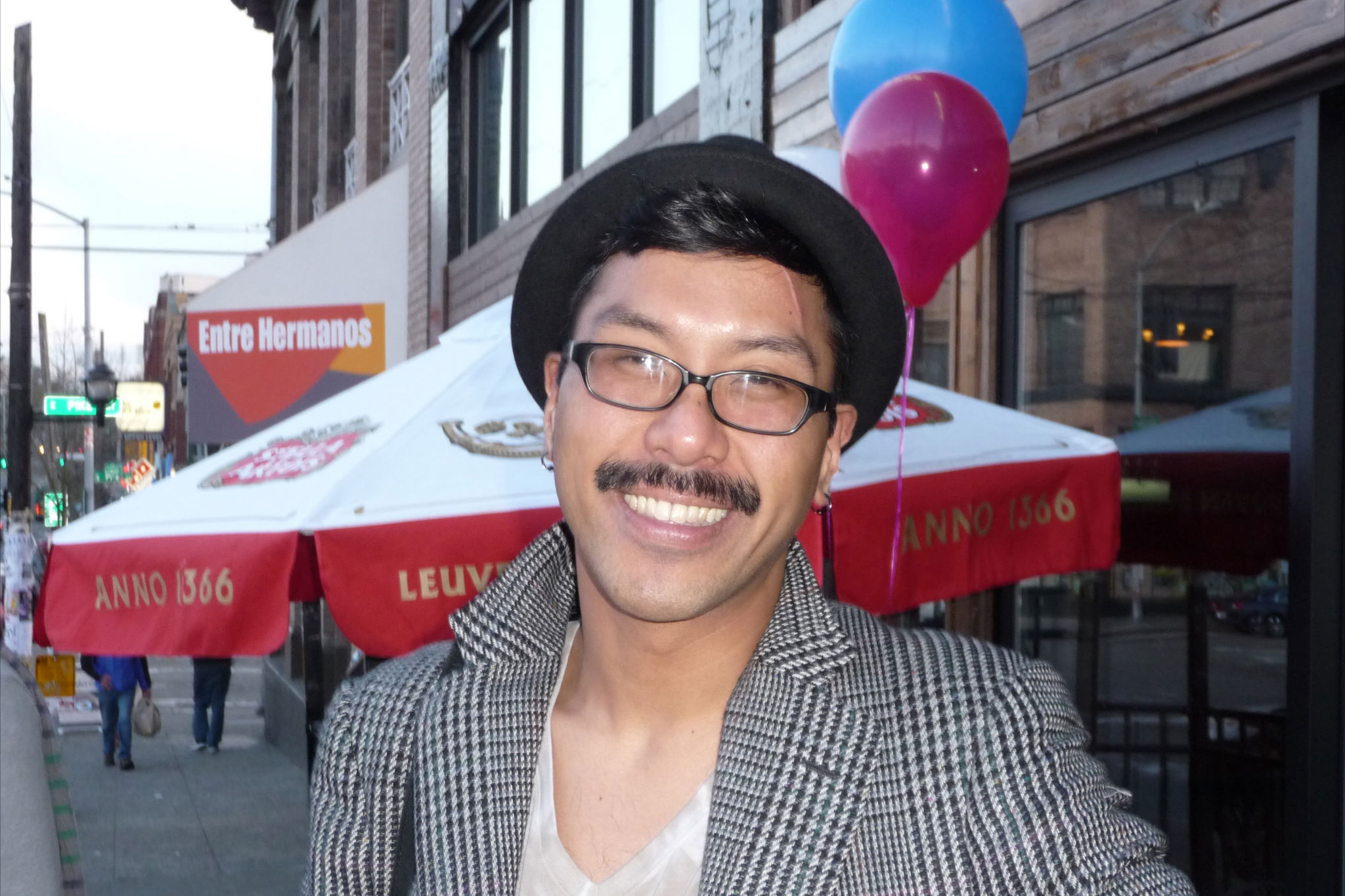 You look strangely familiar. Do I know you from somewhere?
You look strangely familiar. Do I know you from somewhere?
If you’re an academic, or if you go to a lot of gay bars, you may have seen me working in the field.
Hmmm…Are you a professor of Gay Bar Studies?
Not exactly! I go around to different gay bars to promote HIV education, and to recruit people for a study for an HIV vaccine being developed by the Fred Hutchinson Center. But I’m also a grad student in Women’s Studies.
I tend to think of Women’s Studies students as being, well… women. Is that an outdated notion?
In the undergraduate program, it’s about ten percent these days. But it’s much, much lower in the graduate departments. But, I should say that I identify as a gender-queer woman. My pronoun is “she.”
Does the mustache ever throw anyone off?
Yes! Especially when I have a beard!
What drew you to the field of Women’s Studies?
I believe that Women’s Studies is about exploring issues of equality and inequality faced by all groups, not just women. Promoting gender equality goes hand in hand with working to end racism, class-ism, homophobia, all of that.
Are you a Seattle native?
No. I was born in the Mariana Islands, but I moved to this country when I was 10.
Mariana Islands…that’s in Micronesia, right?
Exactly! I don’t meet many people who’ve ever heard of it.
I have one of those atlas shower curtains, and the South Pacific is right by the toilet, so… How long have you lived on Capitol Hill?
I moved here from Portland in 2007. Before that, I lived in San Diego. My dad was in the military, so when I was a kid we moved around a bit.
If you had to pick the thing you like best about this area, what would it be?
I love that there’s so much community involvement. And lots of very intelligent people.
What do you think is the best-kept secret in Capitol Hill?
Did you know that Cal Anderson park used to be a reservoir? Also, I think he was the first openly gay City Council member (Ed. note: state senator!). As for places, maybe Everyday Music and Elliot Bay. Okay, neither of those is a huge secret, but I love those places!
What would you say is the sexiest place on the Hill?
My apartment! No, just kidding. Hmmm. Maybe, The Eagle, a leather bar near Victrola on Pike. It’s kind of hidden behind a black wall. It’s very dark and dank and a little bit seedy, but I love it. You can play pool for free!
Is there a website where readers can learn more about the HIV vaccine trials you’re promoting?
Yes! It’s www.seattlevaccines.org
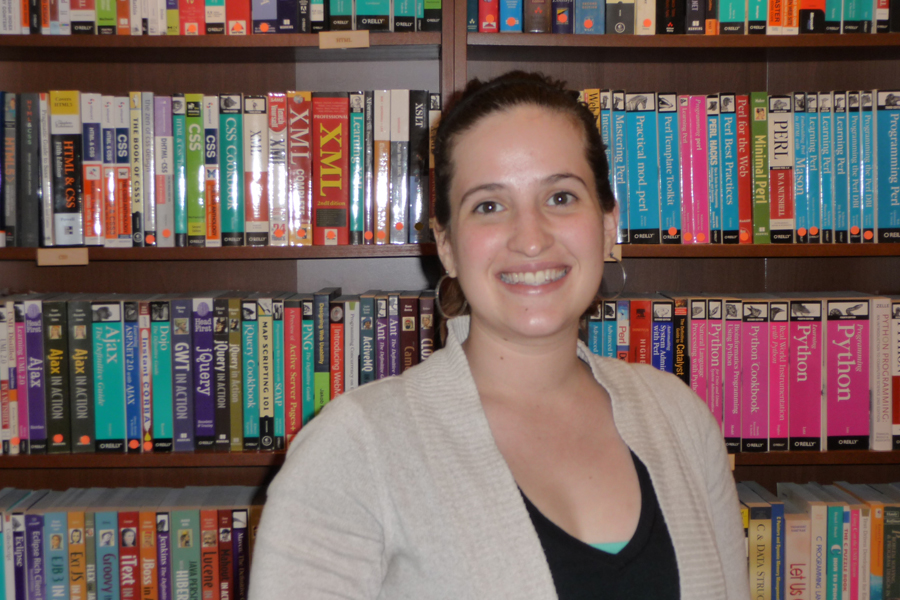 What do you do for a living?
What do you do for a living?
Actually, I own this store [Ada’s Books].
You’re the eponymous Ada?
No — it’s named after Ada Lovelace, the 19th century mathematician who’s sometimes thought of as the world’s first computer programmer, because of an algorithm she developed.
What gave you the idea to open a bookstore that mostly specializes in math and computer books?
I majored in engineering, so I went to a lot of technical bookstores. But it always felt like a guy was running them—bright lights, concrete floors, not much attention to aesthetics. I thought, why not have a place with some character, and paint—somewhere that will be welcoming to both women and men? Also, I wanted a bookstore that would create a sense of community by hosting events on subjects that interest our customers.
What is an example of a recent event you’ve hosted?
There are so many. We’ve had everything from science book clubs to a guy from HazardFactory who talked about a new flaming tetherball league.
Flaming tetherball? Okay, so far in the CHS Crow, we’ve had discussions of flaming trombones, flaming nun chucks, and now…tetherballs. What’s up with the pyromaniacs on Capitol Hill?
In the hacker community, anyway, I think it’s because there’s something inherently subversive about doing something ordinary in an entirely new way.
Do you consider yourself a hacker?
I do — but that term is very misunderstood. First, I don’t do anything illegal, which is actually true for a lot of hackers. By my definition, a hacker is just somebody who’s interested in the way things work. It’s about taking things apart for the sake of understanding how they work, then putting them back together—sometimes, in ways that create something entirely different.
I gotta say—when I think of a “hacker who owns a technical bookstore,” you’re not the person who comes to mind.
Yes, I know! There’s the stereotype of the computer geek or hacker as being a male, straight, and a BDN [basement-dwelling nerd]. I want to help change that notion. I’d like to make the community more inclusive.
Are you a Seattle native?
No, I’m originally from Colorado Springs. I originally came here to go to school at Seattle Pacific, then I fell in love…
With the area, or a person?
Both! I met my husband here, but he’s from San Diego originally.
I know tons of techies who live on Capitol Hill, even though it’s not near any of the big tech companies. Why do you think they migrate here?
There’s a certain kind of techie who’s a lot like an artist. For them, tech is about exploring boundaries, and creating new things. I think these people are attracted to areas with a higher concentration of open-minded, creative types.
What do you think is the best-kept secret on the Hill?
Metrix Create:Space workshop, for one. Also, Interlaken Park—it’s sort of hidden between Capitol Hill and Montlake. You really feel like you’re deep in the woods, even though it’s not that big.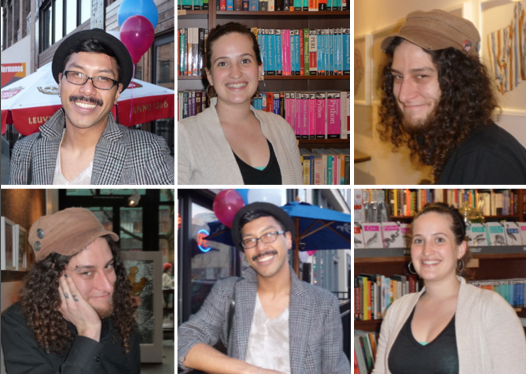
Past CHS Crows
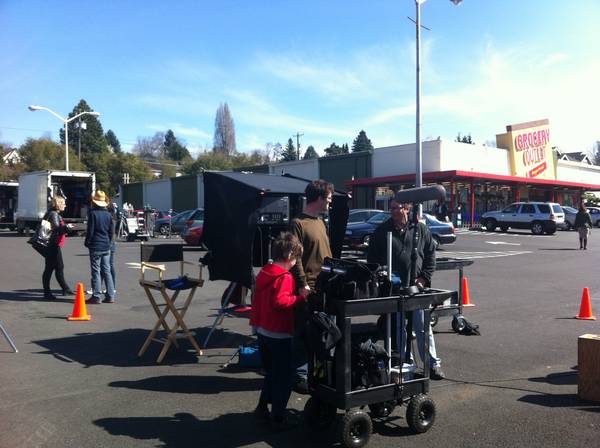 Shooting began Friday in the Central District. It’s one of a handful or projects taking advantage of beautiful Seattle weather including a commercial for a dental association that made its way around Capitol Hill last week.
Shooting began Friday in the Central District. It’s one of a handful or projects taking advantage of beautiful Seattle weather including a commercial for a dental association that made its way around Capitol Hill last week.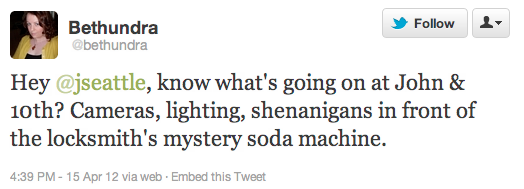
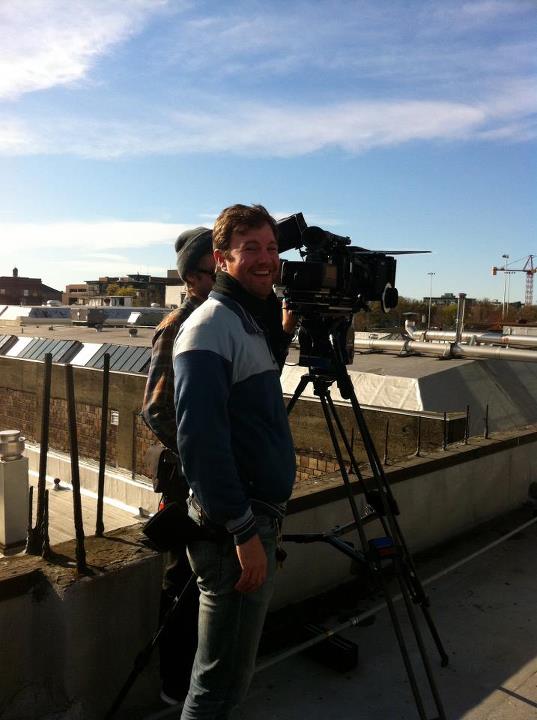 Atop Capitol Hill — from Art Zone with Nancy Guppy
Atop Capitol Hill — from Art Zone with Nancy Guppy


